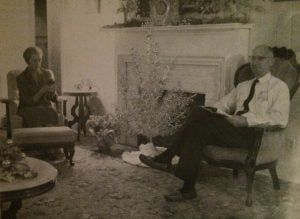I Have To

Last Saturday, a group of young people gathered on the steps of the federal courthouse in Fort Lauderdale, Florida for the sole purpose of making their voices heard. Why? Because they’d had enough. Actually, because they’d had too much. Just a few days earlier, fourteen students and three staff members of Marjory Stoneman Douglas High School had been gunned down in cold blood—and if humanly possible, they weren’t going to let that happen again. They were heartbroken. They were angry. They were passionate. And they were determined to be heard.
One spokesperson who seemed to take the lead was a senior from the school named Emma Gonzalez. In an interview with The New York Times, she noted that people had criticized the students for speaking so soon after the tragedy. She was told that instead they needed to take time to grieve. Her response?
“ This is the way I have to grieve . I have to make sure that everybody knows that this isn’t something that is allowed to happen.”
Ms. Gonzalez and those who are a part of the same effort have something in common with previous victims of tragedies—they don’t take their grief lying down. The students at Marjory Stoneman Douglas and other schools across the country have turned their grief into goals. They have redirected their pain into a purpose and their anger into action. And their determination will make them a force with which to be reckoned. It is how many people choose to deal with loss and its aftermath.
It was the course of action chosen by Candace Lightner after her thirteen year old daughter, Cari, was killed by a drunk driver on May 3, 1980. Cari and a friend were walking to a church carnival when she was struck from behind by a three-time repeat offender who had been released from jail just two days before, having served time for his fourth DUI. Candace Lightner campaigned tirelessly to change the drunk driving laws in her home state of California, always carrying her daughter’s picture with her, putting a face and a name to the horrific tragedy. Her efforts resulted in the founding of Mothers Against Drunk Driving (MADD), which was incorporated on September 5, 1980—slightly over four months after Cari’s death on what would have been her fourteenth birthday. The efforts of MADD are responsible for raising the legal drinking age to 21 and lowering the blood alcohol limit for impaired driving to .08—a law that had passed in all 50 states by 2004. By 2015, MADD had helped save nearly 330,000 lives. All because one woman had enough and was determined to bring about change.
It was the course of action chosen by John Walsh after the kidnapping and murder of his six year old son Adam on July 27, 1981. Not content to simply mourn the loss of their son, John and his wife, Reve, founded the Adam Walsh Resource Center, a non-profit organization dedicated to legislative reform; the Center eventually merged with the National Center for Missing and Exploited Children. Unwilling to stop there, John and Reve organized a political campaign which eventually led to the creation and passage of the Missing Children Act of 1982 and the Missing Children’s Assistance Act of 1984. That was followed by the Adam Walsh Child Protection and Safety Act which was signed into law by President George W. Bush on July 27, 2006. Thirty-six years later, John Walsh is still testifying before Congress and state legislatures on crime, missing children, and victim’s rights issues. All because he is determined that his son will not have died in vain.
These people, and so many others, did not let their grief disable them. Instead, it defined them, shaping them into people of purpose and determination who vowed to make a change in the world. Many of them have managed to do just that, and whether or not you agree with the positions they have adopted and the change for which they are working, one thing is undeniable— this is the way they have to grieve.
The post I Have To appeared first on Shackelford Funeral Directors | Blog.












